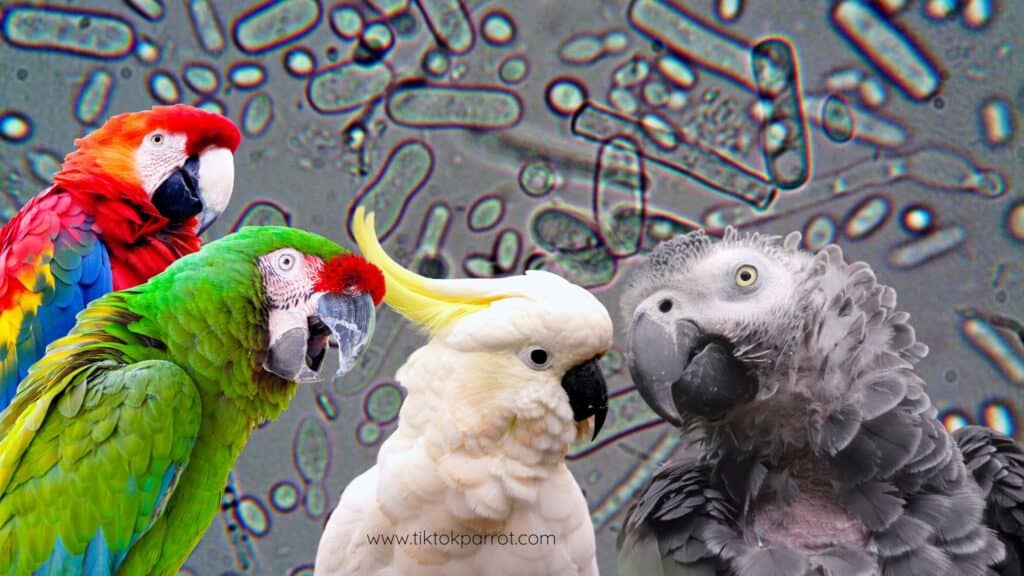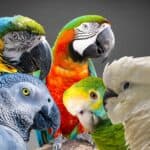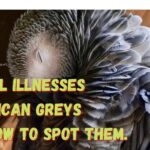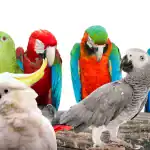Eek! My Bird’s Got a Bellyache: Unveiling the Mystery of E. coli in Parrots
Hey there, parrot peeps! Welcome back to TiktokParrot, your one-stop shop for all things feathered fun and, well, sometimes feathered frustration (we’ve all been there!). Today, we’re tackling a topic that might have your parrot squawking in discomfort: E. coli in birds. Don’t worry, though, this isn’t a recipe for avian apocalypse! Let’s shed some light on this bacterial bad boy and keep your feathered friend feeling happy and healthy.
Dive into the quirky world of E. coli in birds! Uncover the truth behind this sneaky bacteria and learn how to keep your feathered friends safe.
E. coli – the name might sound like something out of a sci-fi movie, but it’s actually a type of bacteria that lives naturally in the guts of many animals, including us humans (don’t worry, not the bad kind!). However, just like that surprise extra guest at your party, sometimes the wrong strain of E. coli can crash the party in your parrot’s tummy, causing some serious discomfort.
Introduction
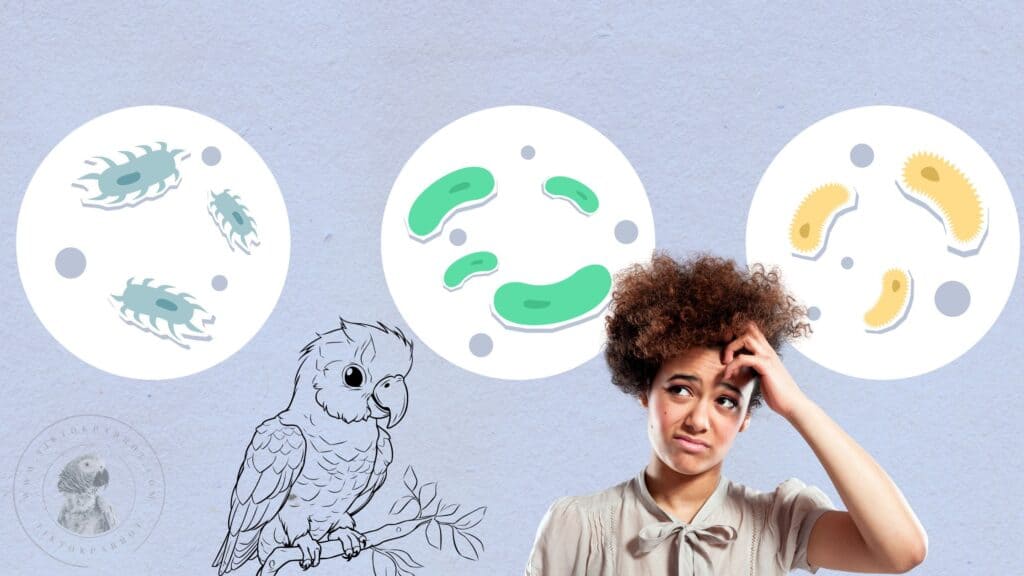
E. coli, short for Escherichia coli, is a type of bacteria found in the intestines of humans and animals. While some types of E. coli are harmless, others can cause infections. One dangerous type is called enterohemorrhagic E. coli (EHEC), which can lead to serious illnesses.
It was first discovered in the United States in 1982. EHEC can be spread through undercooked food like hamburgers, unpasteurized juice, salad, and milk. It produces toxins that can damage the intestines, causing symptoms like diarrhea, stomach cramps, and even kidney failure in severe cases, especially in children.
So, How Does This Unwanted Guest Get in There?
Imagine your parrot as a feathered explorer, curiously pecking at everything in sight. Unfortunately, this adventurous spirit can sometimes lead them to some not-so-delicious discoveries:
- Contaminated Food: Spoiled or dirty food and water are breeding grounds for unwanted bacteria. Think of it as a stale cracker gone rogue, just waiting to upset your parrot’s tummy!
- Dirty Dishes: Just like you wouldn’t use a dirty plate, neither should your feathered friend! Unclean food and water containers can harbor nasty bacteria.
- Unhygienic Environment: A dirty cage or play area can become a breeding ground for E. coli. Imagine your parrot’s play zone turning into a germ hotel – not a pleasant thought!
- Stressful Situations: Stress can weaken your parrot’s immune system, making them more susceptible to infections like E. coli. Picture your parrot after a long car ride – stressed and grumpy, and maybe a little more likely to catch a bug.
- Contact with Infected Birds: Birds, like humans, can carry E. coli without showing symptoms. Contact with infected birds, whether in the wild or in captivity, can spread the bacteria to healthy birds.
Uh Oh, My Parrot Seems Unwell! What Are the Signs?
Just like us, birds show signs when they’re feeling under the weather. Here’s what to watch out for:
- Diarrhea: This is a classic sign of a troubled tummy. Think of your parrot’s usual, neat droppings turning into a watery mess – yuck!
- Lethargy: Is your usually energetic parrot suddenly napping more than usual? This lack of energy can be a sign of illness.
- Loss of Appetite: Imagine your parrot turning up his beak at his favorite treats – that’s a red flag! A healthy bird should be excited about mealtime.
- Weight Loss: If your parrot seems to be shrinking a bit, it could be a sign of E. coli or another underlying issue.
Don’t Panic! How Can I Help My Feathered Friend?
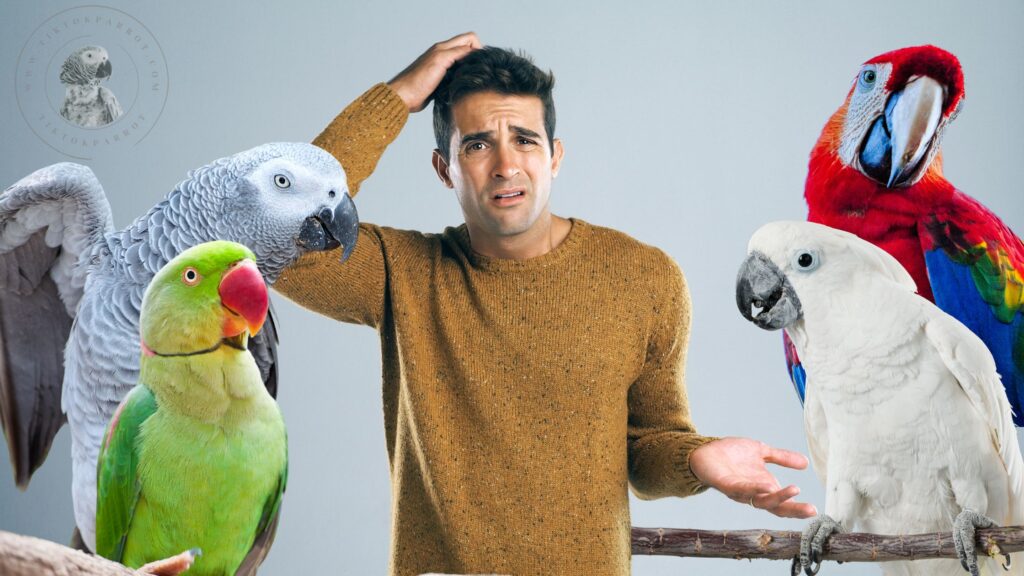
If you suspect your parrot has E. coli, the first step is to seek professional help. A qualified veterinarian can diagnose the problem and recommend the best course of treatment. This may include antibiotics to fight the bacteria and fluids to keep your bird hydrated.
Prevention is Key: Keeping Your E. coli Out of Your Feathered Friend
Now, let’s talk about keeping those unwanted guests out of your parrot’s tummy! Here are some simple steps you can take:
- Fresh Food and Water: Provide your parrot with fresh, clean food and water daily. Think of it as a five-star dining experience for your feathered friend! Freshness is key!
- Cleanliness is Next to Godliness: Regularly clean your parrot’s cage, toys, and food and water dishes with a disinfectant solution safe for birds. Imagine giving your parrot’s play area a spa day – they’ll appreciate it!
- Manage Stress: Minimize stressors in your parrot’s life. Provide plenty of mental stimulation with toys and activities. Think of it as keeping your parrot entertained – a happy parrot is a healthy parrot!
- Regular Checkups: Schedule regular checkups with your avian vet to ensure your feathered friend stays healthy. Think of it as a yearly tune-up to keep your parrot in tip-top shape!
My Closing Thoughts
E. coli might be a bit of a pain, but by being informed and taking preventive measures, you can keep your feathered friend healthy and happy. Remember, early detection and veterinary care are crucial if your parrot does get sick.
Have you ever dealt with E. coli in your birds? Share your experiences, tips, and questions in the comments below. Together, we can create a healthy and happy environment for all our feathered friends!
If you found this blog helpful, It would be great if you could share it with your family and friends who might find it useful as well.
You might like to read these as well 🙂
Avian Tuberculosis in Birds – Signs, Prevention, And Treatment
Silent Spreader: The Scary Truth About Polyomavirus in Birds
Psittacine Beak and Feather Disease (PBFD) In Pet Birds
Understanding Chlamydia psittaci (Psittacosis) In Pet Birds
Understanding Pacheco’s Disease Symptoms, Transmission and Prevention
From Beaks to Bellies: Understanding African Grey Parrot Vomiting
For more useful content about African grey parrots, you can subscribe my site with your email to get notification upon publishing a new blog, the subscribe box you can see on the right side of this page. Also if you get an alert on your web browser while browsing my site, allow it and that will also give you an alert whenever I publish a new blog. 🙂
Stay safe and much love!


Hey there! 🐾 Looking for top-notch pet supplies or anything on Amazon?
Support our site by shopping on Amazon through our this referral link, it will not cost you extra!
Your purchases on Amazon can help us continue providing valuable content.
Thank you for your support! 🛍️

